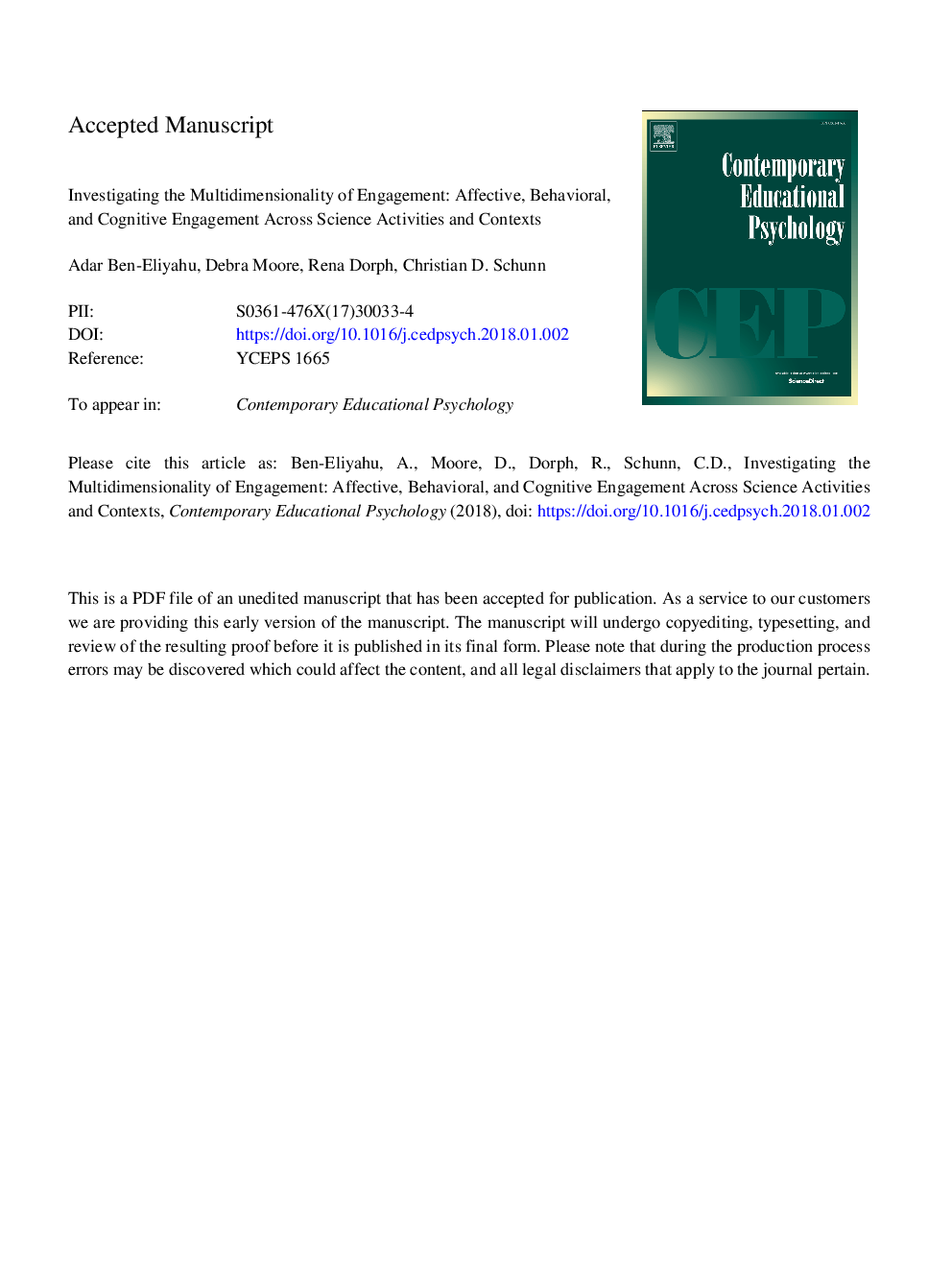ترجمه فارسی عنوان مقاله
بررسی چند بعدی بودن تعامل: تعامل عاطفی، رفتاری و شناختی در سراسر فعالیت های علمی و زمینه ها
عنوان انگلیسی
Investigating the multidimensionality of engagement: Affective, behavioral, and cognitive engagement across science activities and contexts
| کد مقاله | سال انتشار | تعداد صفحات مقاله انگلیسی |
|---|---|---|
| 135623 | 2018 | 77 صفحه PDF |
منبع

Publisher : Elsevier - Science Direct (الزویر - ساینس دایرکت)
Journal : Contemporary Educational Psychology, Volume 53, April 2018, Pages 87-105

